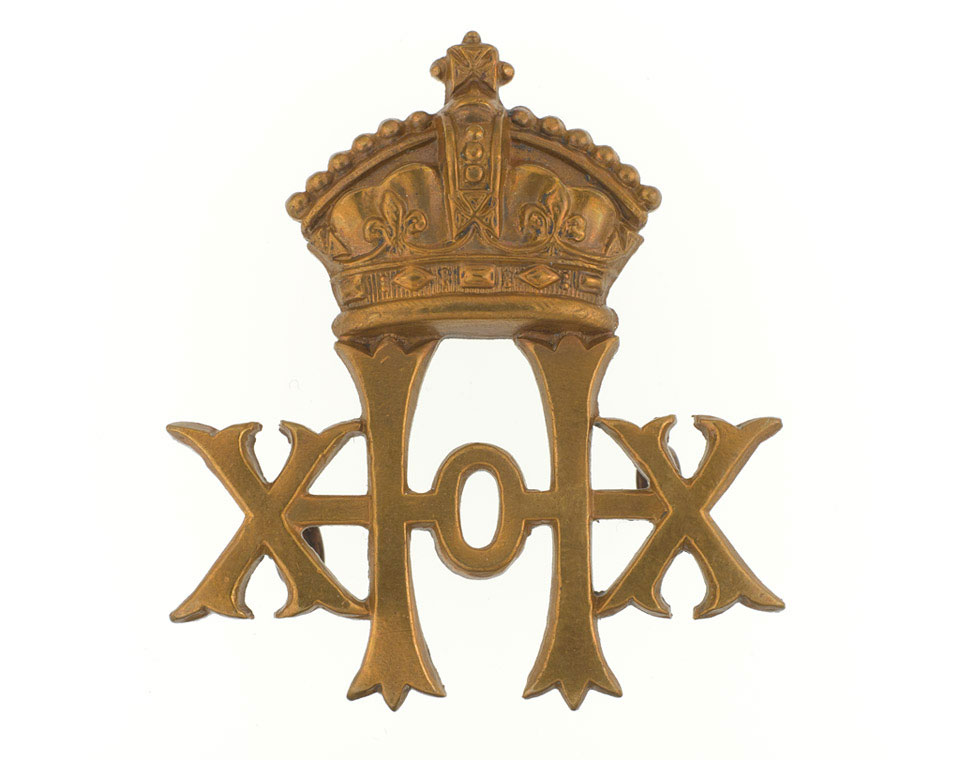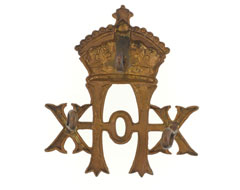
Online Collection
« Prev - 1 of 1 results - Next »
Cap badge, other ranks, 20th Hussars, 1902-1920
Brass cap badge in the form of a letter 'H', flanked by the regimental number in Roman numerals, surmounted by a crown.
In the aftermath of the Indian Mutiny, the East India Company doubted the loyalty of Indians in its cavalry units and so recruited several units made up entirely of non-Indians. One of these was the 2nd Bengal European Light Cavalry, formed in 1858 and transferred to the British Army only three years later whilst still in India. On its transfer, it was converted into hussars and took over the then-vacant numeral 20 in the cavalry order of precedence. Five unconnected regiments with that numeral had been raised and disbanded between 1706 and 1818 and in 1890 the 20th Hussars was officially recognised as their successor.
The regiment remained in India until 1872, serving on both the Umbeyla and Black Mountain expeditions. It then mostly served in England from 1872 to 1895, broken only by a period in Ireland from 1879 to 1884. During the 1880s it sent four troops to the Sudan, along with a detachment to the Egyptian Frontier Force.
The next overseas posting for the regiment as a whole only came in 1895, when it returned to India. From there it moved to the Boer War in 1901, then Egypt the following year and England in 1904. Another Irish posting came from 1908 to 1911, but it was from England that the regiment deployed to the Western Front in 1914. There it mainly fought in a dismounted role, only serving on horseback for the first and last months of the conflict.
After service in Palestine, still unmechanised, the regiment was disbanded in 1921, but the following year it was re-formed as a single squadron to amalgamate with the 14th Hussars, forming the 14th/20th Hussars.
NAM Accession Number
NAM. 1964-04-85-30
Copyright/Ownership
National Army Museum Copyright
Location
National Army Museum, Study collection
Object URL
https://collection.nam.ac.uk/detail.php?acc=1964-04-85-30


